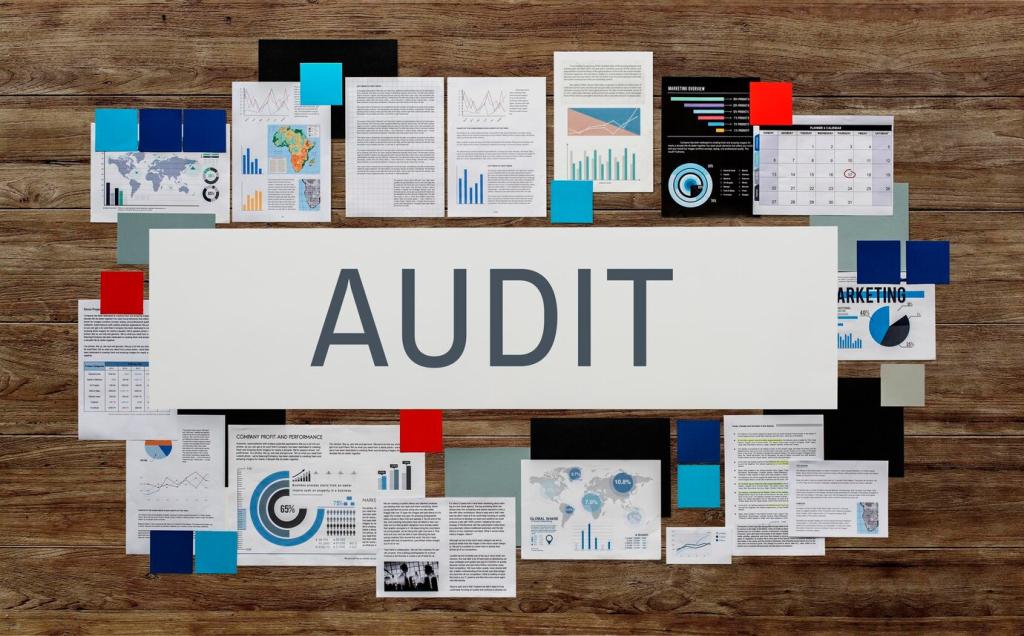Detailed Guide to Company Audits
A company audit is an essential process that involves the critical examination of a company’s financial statements, operations, and internal controls by an independent entity. This guide provides comprehensive insights into the objectives, steps, types, and best practices for conducting successful company audits. Whether your business is preparing for its first audit or seeking to optimize ongoing processes, understanding every detail of the audit journey can promote transparency, compliance, and long-term growth.
Understanding the Purpose of Company Audits
One of the primary aims of a company audit is to enhance transparency within a company’s financial reporting process. Auditors meticulously assess financial statements to verify accuracy, completeness, and compliance with relevant accounting standards. This process provides assurance to stakeholders that the financial information disclosed truly reflects the company’s actual financial position. Transparent reporting not only helps attract new investors but also allows current shareholders to make informed decisions based on credible data. In an era where corporate accountability is paramount, robust audits level the playing field for organizations and contribute to healthy business ecosystems.
Regulatory compliance is a critical rationale for company audits across various jurisdictions. Regulatory bodies mandate audits to ensure that companies operate within the bounds of prevailing laws and standards, including tax regulations and industry-specific financial disclosure rules. Auditors review documentation, interview key personnel, and analyze processes to confirm adherence to these legal requirements. Non-compliance can result in legal penalties, reputational harm, and operational disruptions, making thorough audits invaluable for long-term business sustainability. By systematically examining compliance, audits support a culture of integrity and operational excellence within the organization.
Beyond financial reporting and compliance, audits play a pivotal role in uncovering fraudulent activities and weaknesses in internal controls. By employing techniques such as sampling, forensic analysis, and process walkthroughs, auditors can spot irregularities or suspicious transactions that might otherwise go unnoticed. Early detection of fraud or control deficiencies allows management to take corrective actions before minor issues escalate into significant losses. Regular audits reinforce ethical behavior across the organization and deter potential wrongdoers by signaling that dishonest acts will be detected and addressed swiftly.
Key Phases of the Audit Process
The initial phase of any company audit involves thorough planning and preparation. Here, auditors develop a comprehensive understanding of the business, its environment, and its unique risks. This involves reviewing past audit reports, analyzing industry trends, and engaging with management to clarify the audit’s scope and focus areas. The audit team creates an audit plan that outlines resources, timelines, materiality thresholds, and test procedures. Proper planning facilitates smooth execution, anticipates challenges, and ensures that all significant financial transactions and internal controls are examined thoroughly. Businesses can enhance this phase by collating relevant documents in advance and maintaining open communication with auditors.
Fieldwork represents the heart of the audit process, where auditors conduct detailed testing and collect sufficient evidence to form conclusions. This involves a range of activities such as scrutinizing invoices, examining bank statements, testing internal controls, and performing site visits. Auditors use various methodologies—interviews, observations, substantive tests, and analytical procedures—to validate records and detect discrepancies. Evidence must be persuasive and relevant, supporting audit findings and conclusions. Effective collaboration between the company and the auditors during this phase can accelerate information sharing and resolve queries promptly, minimizing disruptions to routine business operations.
The culmination of the audit process is the reporting and follow-up phase. Auditors compile their findings, evaluate the sufficiency of audit evidence, and issue an audit opinion regarding the fairness of the company’s financial statements. This report is then presented to the Board of Directors, management, and, in some cases, external stakeholders such as regulators or shareholders. A clear and concise audit report provides actionable insights, highlights deficiencies, and often recommends remedial actions. Follow-up ensures that management addresses identified issues, fostering a cycle of continuous improvement and organizational learning.


Statutory Audits
Statutory audits are legally mandated examinations of a company’s financial records and disclosures, typically required by government agencies and financial regulators. The objective is to provide an independent and objective assessment of an organization’s financial statements, ensuring accuracy and adherence to applicable reporting standards such as IFRS or GAAP. Statutory auditors are external professionals appointed by shareholders and report their findings to both management and regulatory bodies. These audits are vital for public companies, large private entities, and any firm where legal or contractual obligations dictate periodic financial scrutiny. The process helps prevent financial misreporting and boosts stakeholder confidence.

Internal Audits
Internal audits focus on evaluating and improving the effectiveness of an organization’s internal controls, governance processes, and risk management practices. Unlike statutory audits, which are externally imposed, internal audits are initiated by the company itself and carried out by in-house or co-sourced audit teams. These audits are conducted regularly and investigate a broad range of areas—from operational efficiency and compliance to information security. Internal auditors provide management with independent insights, recommending enhancements that can streamline operations or reduce vulnerabilities. Successful internal audits contribute to organizational agility and resilience by proactively identifying and addressing inefficiencies, control gaps, and emerging risks.

Specialized Audits
Apart from statutory and internal audits, companies may engage in specialized audits designed to address industry-specific risks or regulatory obligations. Examples include tax audits, IT audits, environmental audits, and forensic audits. Each serves a unique purpose: tax audits ensure accurate tax filings and compliance, IT audits assess cybersecurity and data protection measures, and forensic audits investigate suspected fraud or financial misconduct. These specialized audits require auditors with deep domain expertise and tailored methodologies to deliver actionable results. By leveraging such targeted audits, companies can address niche risks, safeguard critical assets, and maintain compliance with evolving regulations in highly dynamic sectors.
